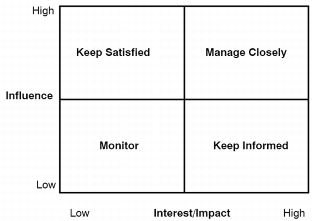Multi-channel Platform for Product Businesses

Stay on top of cash flow, run accurate reports, and get insights into your revenue, expenses, and profitability. QuickBooks separates your revenue from taxes and fees, seamlessly mapping it to the right accounts. QuickBooks can automatically bring in your orders and payouts from your connected online sales channels so that nothing falls through the cracks. Offer a variety of shipping methods in terms of delivery time and price. It’s hard for a customer to justify making a purchase if there’s only one shipping option and it costs as much as the item they’re buying.
Do I need an accountant for my ecommerce business?

Create a clean, visually attractive site design and include compelling content that is both original and benefit-focused. Ensure your site is easy to navigate inventory account: adjustment type affect and feature fast load times. Google prioritizes mobile-friendly websites, so be sure that yours is easy to navigate on a smartphone.
Wholesale B2B sales
- The number of stores you can connect with varies by QuickBooks Online version.
- Even if accounting isn’t your strong point, there are a few simple guidelines to follow for managing a smooth ecommerce operation.
- The best accounting method for an online business depends on its size, complexity, and specific needs.
- There’s the day your product is market-ready, the day you open your online store to the world, and the day you make your first sale—a major step that calls for celebration.
- Once you’ve begun a QuickBooks subscription and imported relevant merchant details, it’s time to set up your Chart of Accounts.
Additionally, ecommerce companies must account for and track inventory, shipping, taxes, and other transactional data. The best accounting method for an online business depends on its size, complexity, and specific needs. By setting up QuickBooks for your e-commerce platform, you can save time and money while ensuring accuracy in your financial records. With the right setup, you can easily track your income and expenses, manage your accounts receivable and payable, and generate financial reports. Failure to connect all business credit cards and bank accounts to your QuickBooks account is a common cause of inaccuracies in financial reports. The purpose of integrating QuickBooks with an e-commerce platform is to streamline the accounting process and make it easier to manage finances.
At Business.org, our research is meant to offer general product and service recommendations. We don’t guarantee that our suggestions will work best for each individual or business, so consider your unique needs when choosing products correlation coefficient vs coefficient of willpower: what’s the distinction in easy terms and services. No, it’s not, but QuickBooks Commerce does require a subscription to QuickBooks Online. QuickBooks Desktop, on the other hand, was discontinued on May 31, 2022. Although QuickBooks Desktop does include inventory tracking features, it is not the same as QuickBooks Commerce.
TradeGecko had five plans ranging from $39 per month to $799 per month, and QuickBooks Commerce offers just one plan that includes all of the loan journal entry basic features from inventory management to accounting updates. Choose an online shopping cart service that is secure, easy for customers to navigate, and one that integrates with your e-commerce payment processing service. Accepting payments on your website should be seamless for the customer. Many payment companies offer easy integration with financial management software (e.g., QuickBooks Online). The first step in setting up your e-commerce accounting is to pick an accounting system. The two main options you have are cash accounting and accrual accounting.
A tax planning checklist to help you avoid an unpleasant surprise
This is a list of all the accounts you will use to track your income and expenses. You can create your own chart of accounts or use a template provided by QuickBooks. Let’s look at the top small business accounting software you can use in your ecommerce business.
Accounting software will also help you plan for growth and manage your cash flow. From double-checking all bank and credit accounts are synced, to properly categorizing expenses, it’s crucial for eCommerce operators to keep their books up to date. Business expenses that may have been paid in cash or through an unlinked account can easily be forgotten and not properly inputted into bookkeeping. When the only expense record is a physical receipt, QuickBooks allows eCommerce operators to upload them to their account via mobile device, computer, or email account.
It gets the job done and allows you to manage sales and inventory across multiple sales channels. The big thing that sets it apart from other platforms is its low price (starting at $55 per month) and its home in QuickBooks Online. If those are deal breakers for your business, you should look at other inventory management options. QuickBooks simplifies the accounting of your e-commerce business. With QuickBooks, you can download your payouts and add them to your accounts.
It prioritizes customers, fulfillment, and multiple sales channels so you can sell anywhere online. Plus, it’s a lot more affordable than almost every other inventory management system on the market. As well, investors and lenders will want to see more than just money in the bank, such as strong sales metrics. Ultimately, you may want to speak to an accountant before deciding.


Bir cevap yazın
Yorum yapabilmek için giriş yapmalısınız.